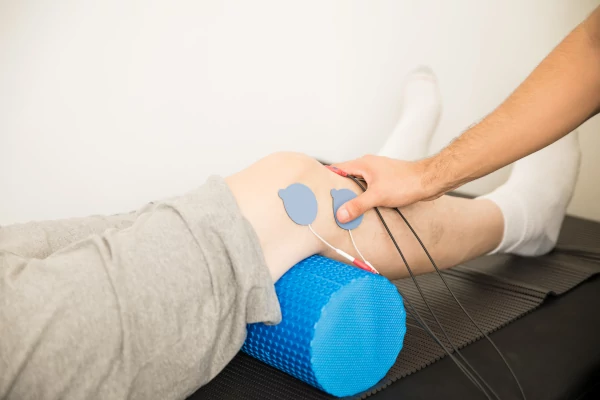Frozen shoulder is a painful condition that affects the shoulder joint, causing stiffness and restricted movement. It is also known as adhesive capsulitis. It usually develops gradually over time and can last for several months or even years. It typically affects people between the ages of 40 and 60, and it is more common in women than in men. In this article, we will provide an in-depth look at the frozen shoulder, its causes, symptoms, and treatment options.
Causes of Frozen Shoulder
Frozen shoulder occurs when the capsule that surrounds the shoulder joint becomes thick and tight. This can limit the shoulder’s movement and cause pain. The exact cause of frozen shoulder is not known, but there are several risk factors that can increase a person’s likelihood of developing the condition. These risk factors include:
- Age: As mentioned, frozen shoulder is more common in people between the ages of 40 and 60.
- Gender: Women are more likely to develop frozen shoulder than men.
- Previous shoulder injury: People who have had a previous shoulder injury, such as a rotator cuff tear, are more likely to develop frozen shoulder.
- Immobilization: Frozen shoulder can occur after the shoulder has been immobilized for an extended period, such as after surgery or due to a broken arm or shoulder.
- Diabetes: People with diabetes are at higher risk of developing frozen shoulder, although the reason for this is not fully understood.
Symptoms of Frozen Shoulder
The symptoms of frozen shoulder typically develop gradually and in three stages. The first stage is the painful stage, which can last for 2 to 9 months. During this stage, the shoulder becomes increasingly painful, especially at night, and movement becomes more difficult.
The second stage is the frozen stage, which can last for 4 to 12 months. During this stage, the pain may decrease, but the shoulder becomes increasingly stiff, and movement is severely limited.
The third and final stage is the thawing stage, which can last for 6 to 24 months. During this stage, the shoulder slowly begins to regain its movement and function.
Treatment of Frozen Shoulder
The treatment of frozen shoulder aims to reduce pain and restore movement to the shoulder joint. There are several treatment options available, including:
- Pain medication: Over-the-counter pain medication, such as ibuprofen or acetaminophen, can help reduce pain and inflammation.
- Physical therapy: Physical therapy can help improve shoulder range of motion and reduce pain.
- Steroid injections: Corticosteroid injections into the shoulder joint can help reduce pain and inflammation.
- Joint distension: Joint distension involves injecting sterile water into the shoulder joint to help stretch the capsule and improve the range of motion.
- Surgery: In severe cases of frozen shoulder, surgery may be necessary to loosen the capsule and improve the range of motion.
The recovery time for frozen shoulder can vary depending on the severity of the condition and the effectiveness of treatment. In general, frozen shoulder can take several months to several years to fully recover.
It is important to seek medical attention if you experience persistent shoulder pain or stiffness, as early treatment can help prevent the condition from worsening.
Preventing Frozen Shoulder
While the exact cause of frozen shoulder is not known, there are several steps people can take to reduce their risk of developing the condition. These steps include:
- Staying active: Regular exercise can help keep the shoulder joint flexible and prevent stiffness.
- Avoiding shoulder injury: Taking steps to avoid shoulder injury, such as using proper lifting techniques, can help reduce the risk of developing frozen shoulder.
- Managing underlying conditions: Managing underlying conditions, such as diabetes, can help reduce the risk of developing frozen shoulder.
Frozen shoulder can be a painful and debilitating condition that affects the shoulder joint. While the exact cause of frozen shoulder is not known, there are several risk factors that can increase a person’s likelihood of developing the condition. If you are experiencing shoulder pain or stiffness, it is important to see a healthcare provider for an accurate diagnosis and treatment plan. With the right treatment, most people with frozen shoulder can regain the full range of motion and function in their shoulder joint.
Featured image by stefamerpik on Freepik


